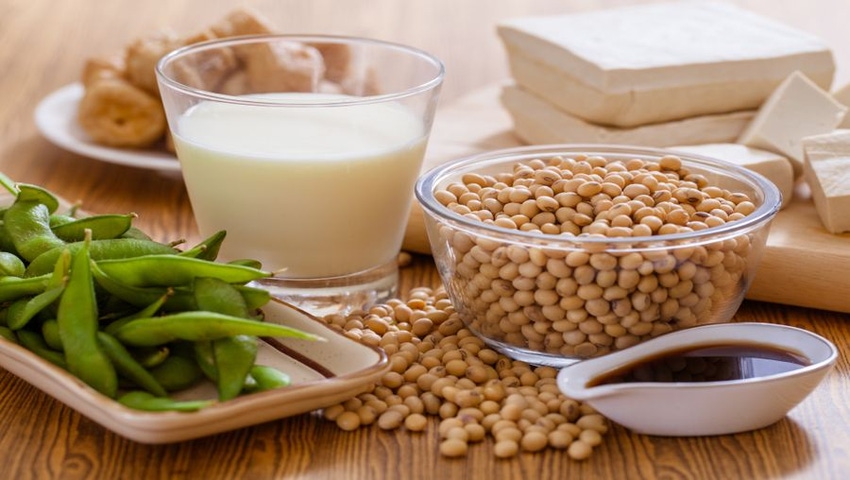Soy Found to be Natural, Effective Antimicrobial Agent
Formulating food and beverage products with clean-label ingredient is now the new norm, and it goes beyond the bench and to include food-safety. In fact, soy isoflavones and peptides may be natural and effective antimicrobial agents that can limit growth of some bacteria, including Listeria and Pseudomonas pathogens, according to a new study published in the journal Biochemistry and Biophysics Reports.

Formulating food and beverage products with clean-label ingredient is now the new norm, and it goes beyond the bench and to include food-safety. In fact, soy isoflavones and peptides may be natural and effective antimicrobial agents that can limit growth of some bacteria, including Listeria and Pseudomonas pathogens, according to a new study published in the journal Biochemistry and Biophysics Reports.
Soybean derivatives are already a mainstay in food products, such as cooking oils, cheeses, ice cream, margarine, food spreads, canned foods and baked goods. According to researchers at the University of Guelph, the use of soy isoflavones and peptides to reduce microbial contamination could benefit the food industry, which currently uses synthetic additives to protect foods.
For the study, soy peptides were tested against bacterial biofilms for their antimicrobial activity. A high throughput drug screening assay was developed using microfluidic technology, RAMAN spectroscopy, and optical microscopy for rapid screening of antimicrobials and rapid identification of pathogens.
“Heavy use of chemical antimicrobial agents has caused some strains of bacteria to become very resistant to them, rendering them ineffective for the most part," the researchers noted. “Soy peptides and isoflavones are biodegradable, environmentally friendly and non-toxic. The demand for new ways to combat microbes is huge, and our study suggests soy-based isoflavones and peptides could be part of the solution."
The study shows promise in overcoming the issue of current antibiotics killing bacteria indiscriminately, whether they are pathogenic or beneficial. Humans need beneficial bacteria in their intestines to be able to properly process food. Peptides are part of proteins, and can act as hormones, hormone producers or neurotransmitters. Isoflavones act as hormones and control much of the biological activity on the cellular level.
About the Author(s)
You May Also Like






.png?width=800&auto=webp&quality=80&disable=upscale)